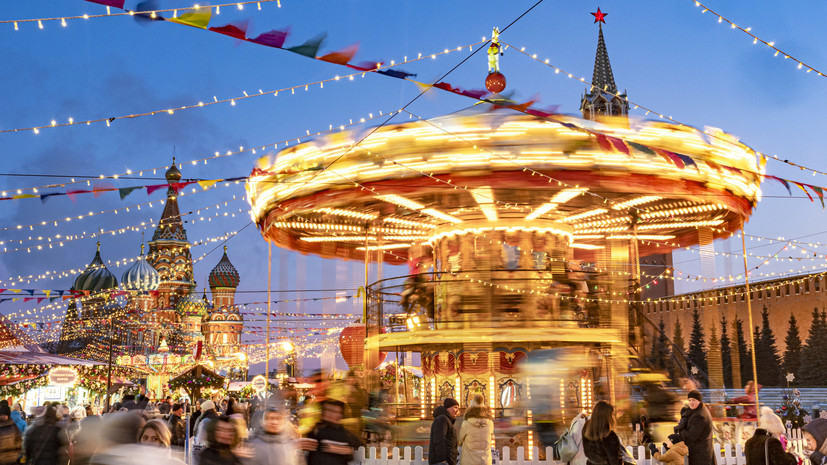The forecaster drew attention to the fact that the period of warm weather, which ends the old year, passes into the new year.
“Temperatures on both December 31 and January 1 correspond more not to the New Year holidays, but to the Day of National Unity.
That is, the weather lags behind its climatic development by about two months.
More specifically, this is expressed in the fact that in the period from December 31 to January 2, precipitation in the form of sleet and drizzle is predicted,” Vilfand said.
According to him, on December 31 the temperature will be about 6 ° C above the climatic norm, and on January 1 - by 8-9 ° C.
“Night temperatures are in the range of -2...+2 °С, and +3...+5 °С is predicted in the daytime on January 1.
This means that the temperature will approach its maximum, and maybe even exceed it.
The maximum value in Moscow on January 1 was recorded in 1973 and amounted to +4.2 ° C, ”said the forecaster.
He also added that such weather is associated with the transfer of warm air masses from the south.
“Air masses on December 31, as well as on January 1 and 2, come to us from the south of the Atlantic, from the Mediterranean Sea and even from northern Africa, which is why the weather is so warm.
And of course, this air is saturated with moisture, because it passes over the Mediterranean Sea and is saturated with water vapor,” the expert explained.
He added that from January 4, the temperature will begin to drop, as a result of which the temperature background in Moscow will be close to its usual values.
Earlier, Deputy Head of the Stavropol Hydrometeorological Center, Head of the Forecasting Department Svetlana Pyanova said that a warm and snowless New Year's Eve is expected in the region.

